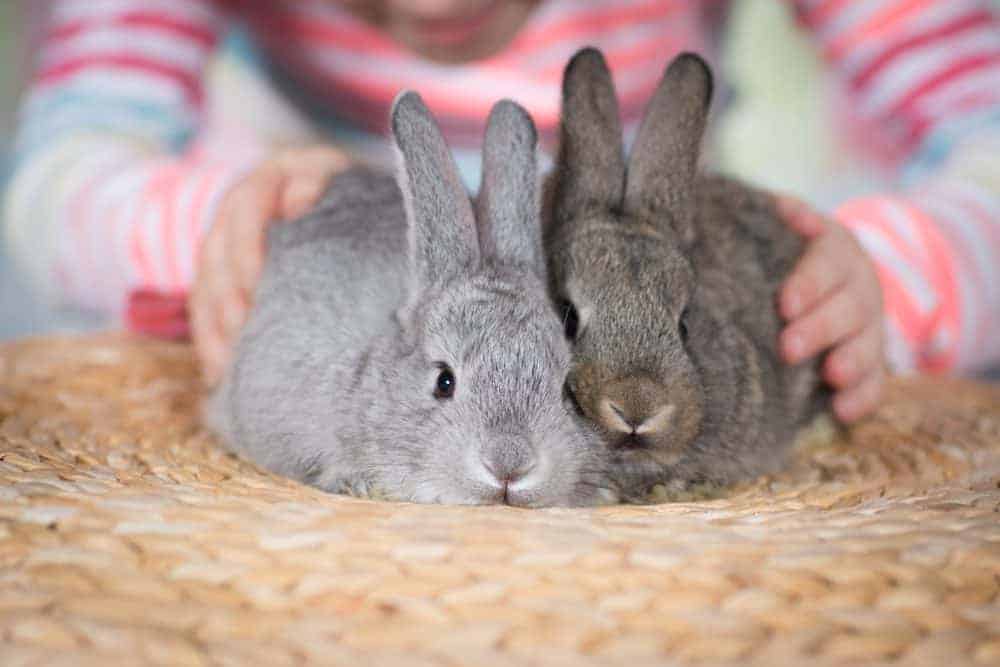
If your much-loved pet suddenly became unwell or suffered an injury, would you know what to do? What symptoms should you look out for that suggest the situation is serious? When should you call the vet?
With small animals, regular checks are really important. Burgess in-house vet, Dr Suzanne Moyes, advises: “Unlike dogs, cats, rabbits and ferrets, small pets don’t require a yearly vaccination. This means that many are never taken to the vets for check-ups. That’s why it’s really important to give your small pets a weekly health check yourself. As with all healthcare issues, prevention is better than cure – and spotting problems early can make all the difference to your pets enjoying a speedy recovery or becoming very ill.”
She continues: “Even the smallest thing that’s out of the ordinary – whether that’s not rushing out to receive fresh food straightaway, their poo looking smaller than usual, or quiet, hunched behaviour – these are signs that something’s not right. If you’re concerned, act quickly and consult your vet.”
What signs reveal something’s seriously wrong?
You should contact your vet immediately if your pet:
- Is having difficulty breathing, or it’s noisy or rapid, or if there’s continual coughing, causing distress
- May have broken bones
- Is having a fit/seizure
- Is having difficulty with balance, moving or coordinating movements
- May have eaten something toxic
- Has collapsed and can’t get up
- Exhibits changes in behaviour/grooming habits
- Has been vomiting or passing diarrhoea for more than 24 hours
- Is trying to toilet, but is unable to (which could indicate a blockage)
- Appears to be in severe pain or discomfort
TOP TIP
Never give human medicines to an animal – many will do more harm than good.
What to do in an emergency
- Don’t panic. If your pet is ill or injured, you’ll be able to help them more if you stay calm
- Call your vet (always have their number to hand or stored on your phone). Explain what’s happened and have a pen and paper handy to take down any important instructions
- Don’t give your pet anything to eat or drink unless your vet tells you to
- Don’t try to deal with serious injuries yourself. This could put you and your pet in danger as animals can lash out when in pain
Please note, that due to coronavirus restrictions, veterinary practices are abiding by set protocols, in line with national guidelines from the British Veterinary Association and the Government. Urgent cases and emergencies will still be treated – but check with your local practice about the procedures they have in place to keep people, as well as animals, safe.
HEATSTROKE IN PETS
While both people and animals enjoy spending time in the sunshine, it’s important to remember that our pets can quickly overheat in hot weather. Dogs and cats only have a few sweat glands around their noses and in their feet and so rely on panting to cool themselves down. Small pets – such as rabbits, guinea pigs and ferrets – don’t sweat and can’t pant, and so find life even more difficult. For chinchillas, who have no ability to dissipate heat, heatstroke can result in fatal seizures. It’s up to us humans to take extra care of our pets in hot weather, providing them with a cool, well-ventilated and shaded environment, with constant access to fresh drinking water. If you think your pet has heatstroke, treat it as an emergency. You’ll need to gradually lower their body temperature so they can recover.
Find out more about the signs of heatstroke and what action you should take here >>
Keep a well-stocked pet first aid kit
A pet first aid kit should contain what you need to give simple first aid for small injuries at home. Even if you can treat your pet with your first aid kit, you should call your vet for professional advice as soon as possible.
- Bandages – a roll of self‐adhesive or crepe bandage (5cm width) and open‐weave bandages (2.5cm width)
- Some non‐adhesive absorbent dressings (5cm x 5cm) to cover open wounds
- Surgical sticky tape
- Cotton wool
- Antiseptic pads
- A box of sterile absorbent wound dressing
- Wound wash
- Blunt ended scissors
- Tweezers
- Tick tweezers
You can stock up on first aid supplies at the PDSA pet store
For more expert advice, you can download a free PDSA Pet First Aid Guide, which covers everything from heatstroke and traffic accidents to how to perform CPR.
If you found this interesting, you may also like:
HOW ARE YOUR GUINEA PIGS DOING THIS WEEK? Carrying out regular checks is a great routine to get into to help your chatty rodent chums stay in the very best of health
GET EVEN CLOSER TO YOUR BUNNIES Getting into the habit of carrying out regular health checks can make all the difference to the health and happiness of your beautiful bunnies, advises our in-house vet Dr Suzanne Moyes
SHOULD LILIES CARRY A HEALTH WARNING? Did you know that lilies are so poisonous that a cat can suffer fatal kidney failure just from nibbling a leaf, licking pollen off their coat or even from drinking water from a vase with cut lilies in it?
LONG LIVE CATS! What can you do to help your cat enjoy a happy, healthy and long, long life? Start by following our 12 top tips...
DEADLY DOG DISEASE CASTS A LONG SHADOW If you’re not aware of the dangers of lungworm, then it’s time to get acquainted with this nasty parasite that can cause serious health problems in dogs.
BLUE GREEN ALGAE ALERT ACROSS THE UK Vets issue a stark warning to dog owners about the deadly danger lurking in the country’s waterways
Sources: pdsa.org.uk, bluecross.org.uk














